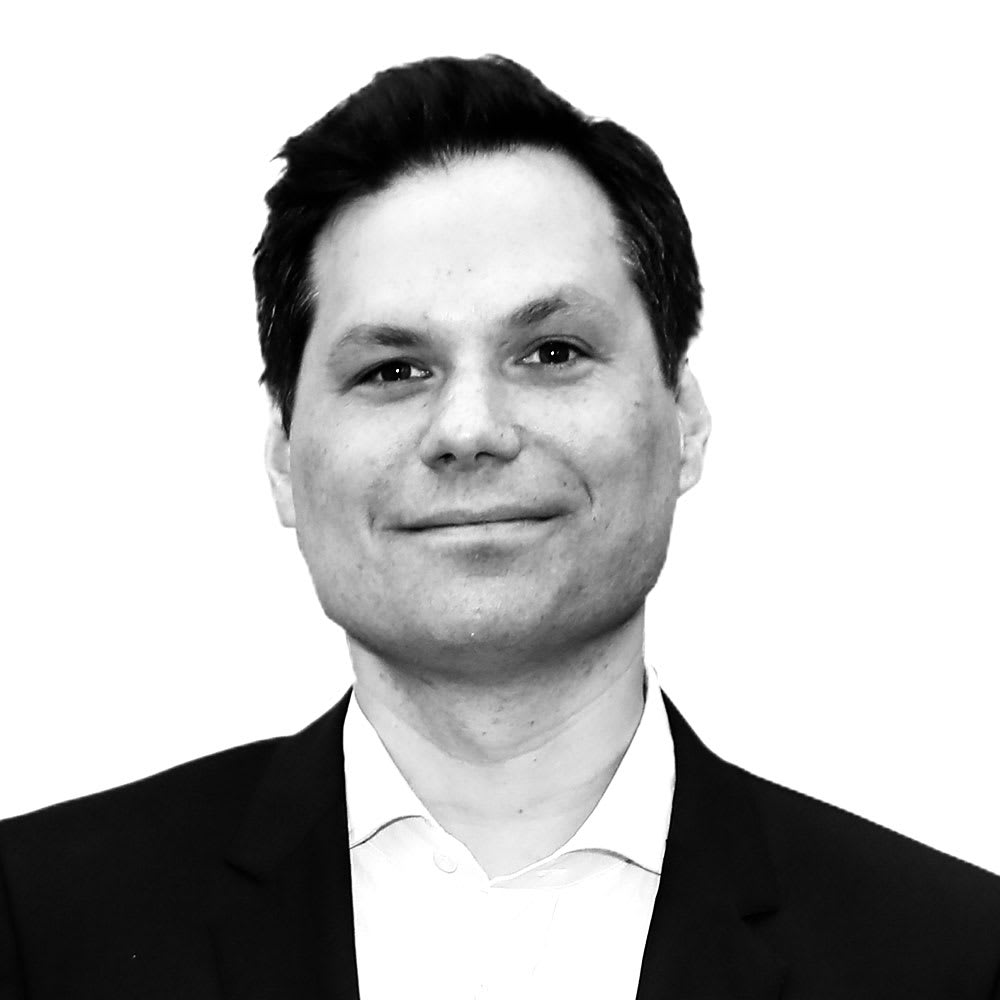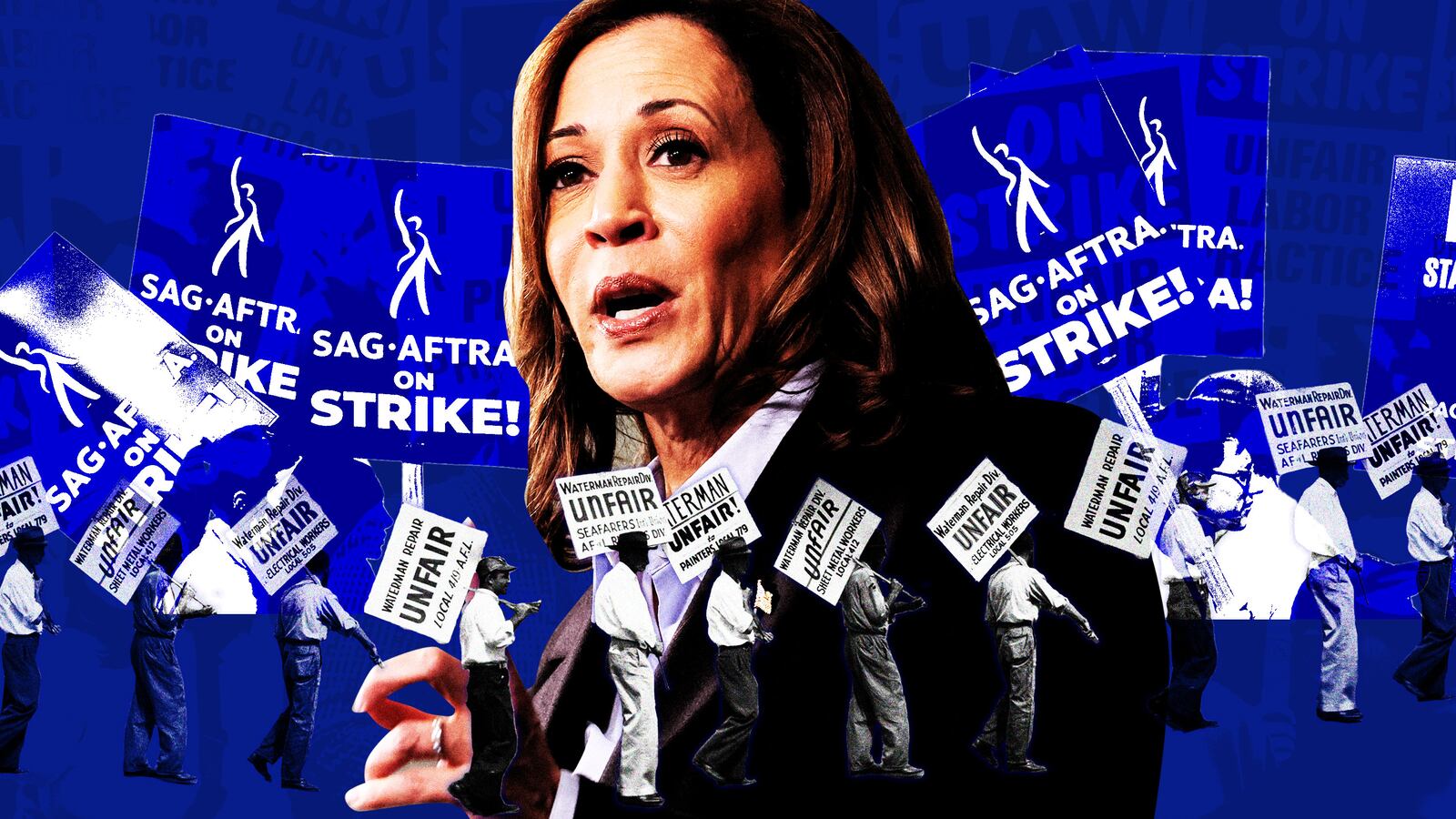My wife, Martha, received a breast cancer diagnosis in 2020. I haven’t publicly discussed her cancer before, and I’m not going to do so now, except to make the point that her treatment would have bankrupted us had we not had health insurance. The thing of it is, though, by the time of her cancer diagnosis, we would have already been bankrupt because of a rare lung infection she’d developed a few years before, which required a major surgery and a lengthy recuperation. Both times, our financial lives were saved because of health insurance. Union health insurance.
Monday was Labor Day. Most people don’t think about the holiday too much, except as a marker for the unofficial end of summer. The Kamala Harris campaign celebrated the holiday in Pittsburgh, where Harris and President Biden appeared at a packed union hall to mark the labor movement and the progress it has made for all American workers.
“Everywhere I go,” Harris said, “I tell people, look, you may not be a union member, you better thank a union member; for the five-day work week, you better thank a union member; for sick leave, you better thank a union member. For paid leave, you better thank a union member for vacation time. Because what we know is when union wages go up, everybody’s wages go up.”
My own entry to union membership came when I was a young actor who’d just booked his first job as a Puerto Rican street hustler on the first season of NYPD Blue. (I made a very convincing male prostitute.) Like all network shows, this was a union gig, and I had to join SAG-AFTRA, then known only as SAG, to perform the part. Union membership cost more than I was going to make on the job but I didn’t care because I knew that the union card was a way of declaring my pride and professionalism in a job I’d only dreamed about attaining—to be clear, I’m talking about acting, not male prostitution.
What people don’t know about my union, the actors’ union, is that it’s a part of the AFL-CIO, the nation’s largest and oldest labor federation. My union is affiliated with unions for metal workers, construction workers, maritime workers, transportation workers, etc. Millions of American workers. Tradespeople, like me.
While much is made of people at the top of the food chain in my profession, there are thousands upon thousands of actors like me, professionals who have to hustle every single day to make a decent living. We’re mostly middle class, we have bills, we worry about our kids and our retirements. There are always way fewer jobs in my industry than there are applicants. Without the protection of unions, unscrupulous producers could easily take advantage of us.
Life on set can be difficult. Twelve or fourteen hour days are common. Working conditions can be challenging or dangerous. Injuries among actors are infrequent, but they do happen. Occasionally, tragedies occur, such as the incident on the set of the Alec Baldwin film Rust, a film staffed with non-union workers.
Our union dictates safety procedures, breaks, meals, and the penalties producers incur when they flout the rules.
The union does more: it establishes minimum wages; it provides health insurance when actors meet a certain earnings threshold each year. Over years of service, we earn a pension. Union reps on each production ensure that actors know who to call in case of a problem. The union doesn’t hold our hands, but it’s got our backs.

Kamala Harris speaks to union workers during a campaign event on September 02, 2024 at Northwestern High School in Detroit, Michigan.
Scott Olson/Getty ImagesWhen we celebrate Labor Day, we’re acknowledging the hard work of labor organizers and the workers who risked so much so that generations of Americans would have certain minimum protections. Generations of plutocrats and oligarchs have done everything they could to break the unions: violence, offshoring, lockouts, job losses. We’ve all seen the stories of workers receiving retaliation for attempting to unionize workforces. And we’ve seen how companies demonize unions, pitting non-union workers against their brethren and sistren. They understand the power of organizing, and the hopelessness of individuals standing up against corporate titans.
In 2011, Republican presidential candidate, Mitt Romney, famously declared at the Iowa State Fair that “Corporations are people, my friend.” He was roundly mocked. Corporations are not people. Unions are people. People filling factory floors and shops, driving trucks, unloading freight, fixing meals, policing the streets, teaching our kids, helping loved ones. Union prices don’t bounce around on the stock ticker. They don’t make people rich—Jimmy Hoffa excluded, natch—but they give their members stability, dignity, hope.
My family is probably just like yours. We work. We spend more than we should and save too little. My kids are like your kids. Our dreams are like yours. Unions are in the business of helping families like mine, and yours. We celebrate their accomplishments because, in this country, power rests in the hands of the people. When people organize, they’re doing so not to hurt their employers, but to protect their families. Our labor is all most have to offer this world. Our talents, our hands, our sweat. We work because we have to; we work well when we’re treated well.
Many of you reading this will know exactly how scary a cancer diagnosis can be. The last thing anybody receiving such news wants to think about is, “Can we afford it?” The fight is hard enough without also having to battle medical providers. Thankfully, Martha is well now. Her breast cancer is gone and unlikely to return. Her scars are a reminder of what we’ve endured and I remain grateful to my union for ensuring that her disease didn’t destroy more than it did. When I hope for a Harris-Walz victory, it’s because I know that they value families like mine. Families like yours.







